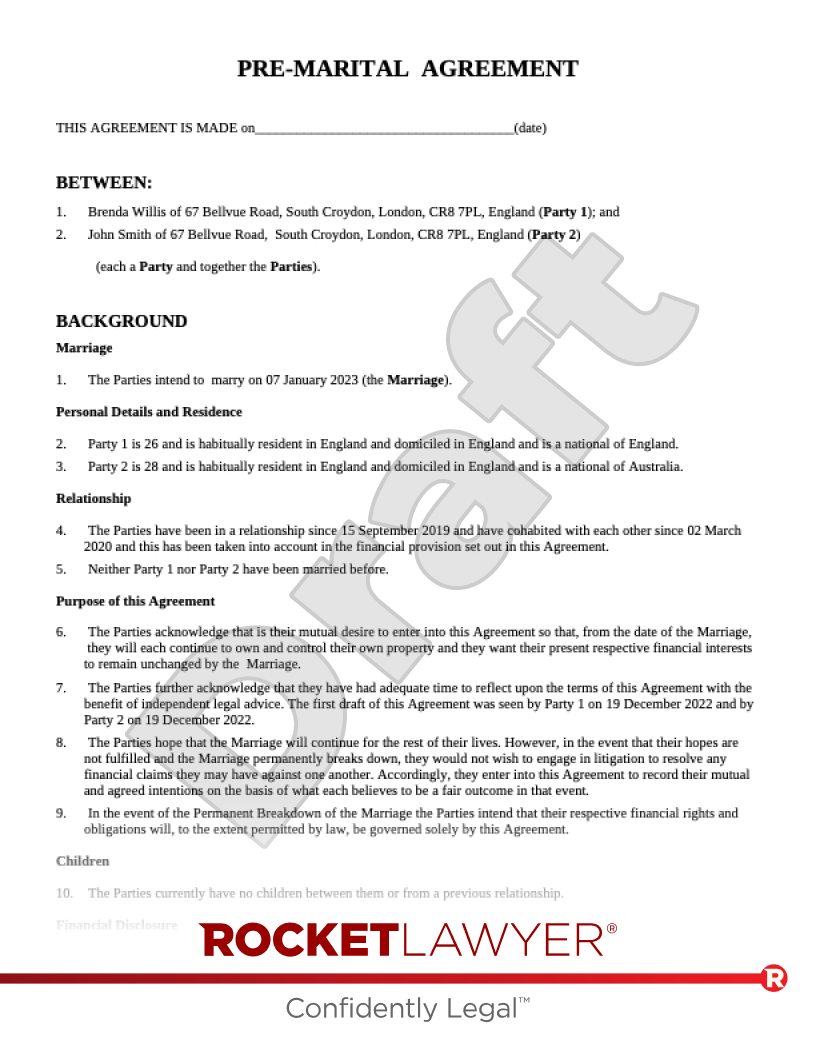How does immigration status affect how to get married?
To get married in England and Wales, you need to give notice of your intention to get married. The process for giving notice depends on the immigration statuses of both parties. There are two main categories:
-
British nationals and foreign nationals with indefinite leave to remain - the process is more straightforward and requires fewer steps
-
foreign nationals without indefinite leave to remain - the process requires more steps, depending on immigration statuses and visas
Who doesn’t require a visa to get married in England and Wales?
You do not need a visa to get married in England and Wales if you:
-
are a British or Irish citizen
-
have settled or pre-settled status under the EU Settlement Scheme
-
applied for settled status on or before 30 June 2021 and are still awaiting a decision
-
have indefinite leave to remain (ILR) in the UK
-
are already living in the UK on a visa that lasts for more than six months (you may, however, need to inform the Home Office that you’ve gotten married)
When is a visa required to get married in England and Wales?
If you do not fall into one of the above categories, you will need to apply for a visa or permit to get married. Whether you need to apply for a visa (and the type of visa in question) or a permit depends on:
-
where you or your partner is from, and
-
whether you want to live in the UK after getting married
What visa or permit do I need to get married in England or Wales?
If you need a visa or permit to get married in England or Wales, you need to apply for the correct visa or permit.
If you or your partner are already living in the UK, make sure that you can get married on your visa. For example, you cannot give notice of your marriage (and therefore get married) on a Standard Visitor visa.
If you cannot get married on your visa, or you and/or your partner are not currently living in the UK, you can apply for a:
-
family visa (also referred to as a ‘spouse visa’ or ‘fiance visa’) - if you want to get married in the UK and live there permanently and your partner is a British citizen, settled in the UK (eg has settled or pre-settled status or ILR), has refugee status or humanitarian protection in the UK. For more information on this type of visa, including eligibility requirements, see the government’s guidance on family visas
-
family permit (or ‘EU Settled Scheme family permit’) - if you are a family member of an EU, EEA or Swiss citizen living in the UK under the EU Settled Scheme, or a family member of an eligible person of Northern Ireland, and want to join them. This permit allows you to join them in the UK for up to six months. For more information on this permit, including eligibility requirements, see the government’s guidance on family permits
-
marriage visitor visa - if you want to get married in the UK but are not planning on living there permanently. A marriage visitor visa lets you stay in the UK for no more than six months. For more information on this type of visa, including eligibility requirements, see the government’s guidance on marriage visitor visas
What happens if I give notice or get married without the right visa or permit?
If you give notice of your intention to get married or without the right visa or permit, the immigration authorities at the Home Office will be informed. The Home Office may:
-
ask further questions about you and your relationship, meaning that you have to wait for up to 70 days before getting married
-
reject your notice, meaning that you cannot get married in England or Wales
If you get married without giving notice (or whilst failing to meet another requirement for a valid marriage), your marriage will be void. This means that your marriage will not be legally valid.
For more information, read Getting married and Annulment.
How do I give notice?
Everyone who wants to marry in England and Wales must give notice at least 29 days before their ceremony. Notice must be given at your local register office. You must have lived in the local area for at least seven days.
Where one partner is from outside the UK (ie is not a British or Irish citizen, does not have settled or pre-settled status, and is not awaiting a decision for an application under the EU Settlement Scheme made before 30 June 2021), you must both give notice together. This means that you have to give notice together at the register office where at least one of you lives (and has lived for at least seven days).
If both of you live in the UK, you either give notice at the registry office in the area (ie registration district) that you both live in (if this is the same) or, if you live in different places (ie in different registration districts), you give notice separately.
If you are getting married in England and Wales under a marriage visitor visa, you need to give notice at the registry office where you are staying (and have been staying for the previous seven days).
For more information on giving notice, read Getting married.
What evidence do I need to provide when giving notice?
When giving notice of your intention to marry, you need to provide:
-
details of the final wedding venue
-
a valid passport (or your UK birth certificate if you were born before 1 January 1983)
-
proof of home address (eg a gas, water or electricity bill from the last three months, a Council Tax bill from the previous 12 months, your valid UK or Irish driving licence, a bank statement from the last month, or a mortgage statement from the last 12 months)
-
proof of name change (eg a copy of your deed poll), if you have changed your name, and
-
proof of divorce (eg a copy of a decree absolute or final order) or your former partner’s death (ie their death certificate), if you were previously married or in a civil partnership
If your normal home address is outside the UK, you need to provide a UK contract address (eg your partner’s, friend’s or family member’s address).
If your divorce was granted outside the UK, the Channel Islands and the Isle of Man, you have to pay further fees for your documents to be checked.
If you or your partner:
-
have settled or pre-settled status - you need to provide a settled status ‘share code’ from the ‘view and prove your immigration status’ service
-
are awaiting a decision under the EU Settlement Scheme - you need to provide your certificate of application
If you or your partner are from outside the UK and do not have settled or pre-settled status and are not awaiting a decision under the EU Settlement Scheme, you also need to provide:
-
a passport-sized photo for each of you (this is the case even where only one of you is from outside the UK)
-
proof of your current immigration status (eg your visa), and
-
translations of any documents that are not in English
For more information, see the government’s guidance on documents needed to give notice.
Can two foreign nationals or non-citizens marry in England and Wales?
Yes, two foreign nationals or non-citizens can marry in England and Wales, provided they meet all immigration and notice requirements.
A legally valid marriage entered into in England or Wales is recognised in many other countries. However, foreign nationals or non-citizens should check their home country’s specific requirements to ensure their marriage is recognised in their home country. For example, they may be required to register the marriage with their embassy or provide certified copies of their UK marriage certificate. Some countries may also have additional documentation or legalisation requirements (eg an apostille, which is a stamped official certificate).
For more information on marrying or forming a civil partnership, read Getting married, Getting married in Scotland, and Registering a civil partnership. If you have any questions or concerns, do not hesitate to Ask a lawyer.





